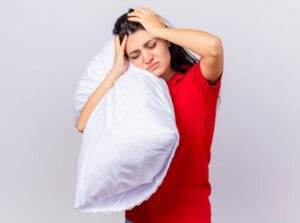The Health Blog

Exploring the Benefits of Melatonin Supplements
Sleepless nights are more common than most people admit. The clock keeps ticking, eyes stay open, and the brain refuses to settle. After a few sleepless nights, a simple solution sounds great—especially since it’s just one capsule away.
That’s where melatonin supplements come in.
Melatonin is one of the most popular natural sleep supplements today. You can find it in pharmacy aisles, health food stores, and bedtime routines globally. But how does it actually work? Is it safe? And who can benefit from it most?
Let’s explore melatonin. We’ll see what it is, how it helps with sleep, and if it’s a good option for those seeking gentle remedies for insomnia.
What Is Melatonin?

Melatonin is a hormone that the body produces naturally. It’s made in the brain’s pineal gland and released into the bloodstream when the sun goes down. Its main job? To tell the body that it’s time to sleep.
In healthy sleep cycles, melatonin levels rise in the evening, peak in the middle of the night, and taper off by morning. It’s a crucial part of the body’s internal clock, also known as the circadian rhythm.
But for some, this rhythm gets disrupted. Travel, stress, late-night screen time, or shift work can throw melatonin levels out of sync — and that’s when supplements may help.
How Melatonin Sleep Aids Work

Melatonin supplements mimic the natural hormone. When taken at the right time, they help signal the brain that it’s time to wind down.
Unlike sleeping pills that sedate the body, melatonin gently nudges it toward rest. It doesn’t force sleep — it supports the conditions that allow sleep to happen.
This makes melatonin a unique kind of sleep aid. It’s not about knocking out the body, but about helping it remember what it’s meant to do.
When Melatonin May Be Helpful
Melatonin isn’t a cure-all, but it can be especially useful in situations where the sleep-wake cycle needs support.
1. Jet Lag
Crossing time zones confuses the body clock. Melatonin can help reset it, making it easier to fall asleep in the new time zone.
2. Shift Work Sleep Disorder
Those who work nights or rotating shifts often struggle with irregular sleep. Melatonin can help prepare the body for sleep during the “wrong” hours.
3. Delayed Sleep Phase Syndrome
Some people naturally fall asleep and wake up much later than typical schedules allow. Melatonin can help shift that rhythm earlier over time.
4. Short-Term Insomnia Due to Stress or Anxiety
If you sometimes struggle to sleep, melatonin can help. It offers gentle support and won’t leave you feeling groggy like stronger medications.
In each of these cases, melatonin acts more like a guide than a sedative. It’s most effective when paired with other good sleep habits.
How to Take Melatonin Properly

Timing and dosage matter more than most people realise.
General Guidelines:
- Start with a low dose. 0.5 mg to 3 mg is usually enough for most adults. Higher doses aren’t always more effective and may lead to side effects.
- Take it 30 to 90 minutes before bed. This gives the body time to absorb and respond to the hormone.
- Use it occasionally, not daily. Melatonin is best used for short-term sleep challenges or to reset sleep cycles — not as a long-term crutch.
- Be consistent. If used over several days, take it at the same time each evening to help the body adjust.
Check labels and talk to a healthcare provider if you have health issues or take medications.
See our guide on 7 Foods That Naturally Promote Sleep for more bedtime-friendly options.
Potential Side Effects and Considerations
Melatonin is one of the safer natural sleep aids, especially when used properly. However, like any supplement, it’s not completely without risk.
Possible Side Effects:
- Daytime drowsiness
- Vivid dreams or nightmares
- Headaches
- Dizziness or slight nausea
These effects are usually mild and fade when dosage is reduced or usage stops. If side effects persist, it’s important to discontinue and consult a medical professional.
Melatonin isn’t recommended for:
- Children (unless under medical guidance)
- Pregnant or breastfeeding individuals
- Those taking blood pressure or blood-thinning medications
Melatonin vs. Other Insomnia Remedies
How does melatonin compare to other approaches? Here’s a quick breakdown:
| Method | Type | Strength | Use Case |
| Melatonin | Hormone supplement | Gentle | Resetting sleep cycles |
| Prescription sleeping pills | Medication | Strong | Short-term insomnia or severe sleep disorders |
| Herbal remedies (e.g. valerian root, chamomile) | Natural | Mild to moderate | Calming and relaxing before bed |
| CBT-I (Cognitive Behavioural Therapy for Insomnia) | Therapy | Long-term solution | Chronic insomnia and behavioural patterns |
Melatonin sits somewhere in the middle — stronger than herbs, gentler than prescriptions. It’s best viewed as a support, not a solution in itself.
Building a Healthy Sleep Routine Around Melatonin
Taking melatonin without addressing lifestyle can limit its benefits. For best results, it should be part of a larger natural sleep strategy.
Here’s how to build a sleep-friendly routine around melatonin use:
- Dim the lights an hour before bed to support natural melatonin production
- Avoid screens during the hour after taking it
- Keep a consistent bedtime and wake time, even on weekends
- Use calming rituals like stretching, reading, or soft music
- Create a sleep-friendly bedroom that’s cool, quiet, and dark
Melatonin supports the rhythm — but the rhythm still needs to be set.
Common Myths About Melatonin
“More is better.”
Not true. A higher dose doesn’t equal better results and may lead to side effects.
“It works immediately.”
Melatonin is not a sedative. It doesn’t knock people out — it cues the body to rest.
“It works for everyone.”
While helpful for many, it doesn’t solve every sleep issue. Chronic insomnia or sleep apnea, for example, may require different treatment.
When to Consider Melatonin — and When to Reassess
Melatonin can be a useful tool for temporary sleep disruptions or circadian rhythm issues. But if sleep problems last more than two to three weeks, it’s time to look deeper.
Underlying anxiety, depression, hormonal shifts, or medical issues could be affecting sleep. In these cases, melatonin may soothe symptoms but not solve the root cause.
A sleep diary, consultation with a doctor, or referral to a sleep specialist may be the next step.
Gentle Support, Not a Magic Cure
Melatonin isn’t a miracle — and it’s not meant to be. When used wisely, it can provide real help for people who struggle with sleeplessness or disrupted sleep patterns.
It works best when seen as part of a bigger plan for rest. This plan should focus on healthy routines, managing stress, and being aware of the body’s signals.
Sleep doesn’t always need to be fought for. Sometimes, it just needs a gentle nudge. In the realm of insomnia remedies, melatonin is a gentle push — small, steady, and helpful.









